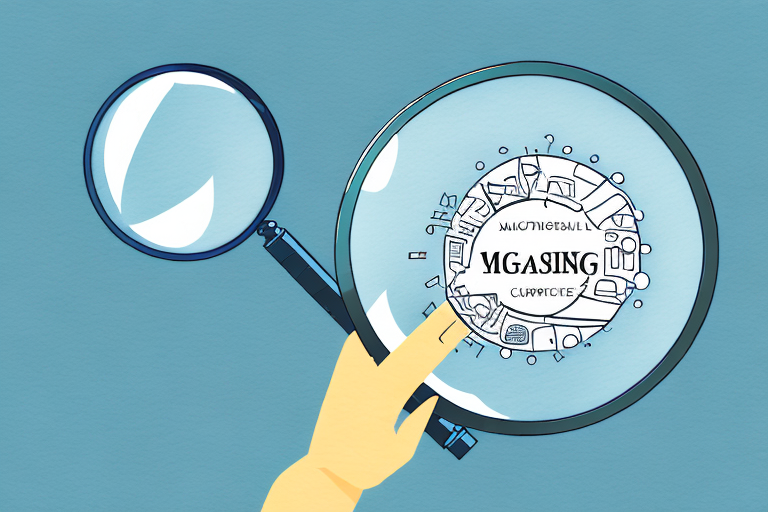Ensuring Customer Privacy in the Digital Age
In today's digital age, the protection of customer privacy is paramount for businesses that handle customer data and personal information. Customers expect their data to be secure when providing personal information online. However, this data can be vulnerable to theft, fraud, or misuse, necessitating robust measures to safeguard customer privacy.
The Importance of Customer Privacy in the Digital Age
The internet has revolutionized business operations, enabling organizations to collect vast amounts of customer data, including sensitive information such as credit card details, social security numbers, and other personal identifiers. Ensuring customer privacy is crucial for building trust between businesses and their customers. According to a Gartner report, 78% of organizations have enhanced their data protection measures in response to increasing privacy concerns.
One of the foremost challenges in protecting customer privacy is the persistent threat of cyberattacks. Cybercriminals continuously seek ways to access sensitive customer data, making it imperative for businesses to implement proactive security measures. This includes adopting strong security protocols, regularly updating software and systems, and providing comprehensive employee training on identifying and preventing cyber threats.
Transparency is another critical aspect of protecting customer privacy. Businesses must be open and honest about how they collect, use, and store customer data. This involves providing clear privacy policies and obtaining explicit consent from customers before collecting any personal information. Transparency not only builds trust but also demonstrates a company's commitment to safeguarding customer privacy.
The Risks of Digital Privacy Invasion
Cybercriminals are adept at stealing customer data, which they can use for fraudulent activities such as unauthorized purchases and identity theft. The risk of cyberattacks is pervasive, affecting both large organizations and small businesses alike. A data breach can result in irreversible damage to a company's reputation and significant financial losses. According to the IBM Cost of a Data Breach Report 2023, the average cost of a data breach is $4.45 million.
Additionally, digital privacy invasion can lead to psychological harm. With the proliferation of social media and online communication, individuals are sharing more personal information than ever before. This data can be exploited to manipulate and harm individuals, leading to emotional distress and mental health issues. It is crucial for individuals to be aware of the risks associated with sharing personal information online and to take proactive steps to protect their privacy.
Understanding Digital Privacy Laws and Regulations
Governments worldwide have implemented laws and regulations to protect consumers' privacy in the digital realm. These regulations dictate how businesses can collect, use, and store customer data, and non-compliance can result in severe legal penalties and reputational damage. Notably, the General Data Protection Regulation (GDPR) in the European Union is one of the most stringent data privacy laws, requiring businesses to obtain explicit consent from individuals before collecting and processing their personal data. The GDPR also grants individuals the rights to access, correct, and delete their data, setting a global standard for data privacy.
Another crucial aspect of digital privacy is cybersecurity. Businesses must implement robust measures to protect customer data from cyber threats and breaches. This includes using strong passwords, encryption, and regularly updating security software. Furthermore, having a comprehensive incident response plan is essential for promptly addressing data breaches, notifying affected individuals, and collaborating with authorities.
Strategies for Protecting Customer Data and Information Online
To safeguard customer data, businesses can employ several effective strategies:
- Secure Encryption: Utilize encryption technology to protect sensitive information, ensuring that data transmitted online is accessible only to authorized personnel.
- Multi-Factor Authentication (MFA): Implement MFA to add an extra layer of security for accessing online accounts, requiring multiple forms of identification.
- Data Minimization: Limit the collection of customer data to what is essential for business operations.
- Employee Access Control: Enforce strict policies that restrict employee access to customer data based on necessity.
- Regular Software Updates: Ensure that all software and systems are updated regularly to protect against the latest cyber threats.
Educating customers on protecting their own data is equally important. Providing resources such as online security guides, tips for creating strong passwords, and information on identifying phishing scams can empower customers to take control of their privacy, thereby enhancing overall security and building trust.
The Role of Encryption in Ensuring Customer Privacy
Encryption is a fundamental tool in safeguarding customer privacy. It converts sensitive data into a coded format that can only be deciphered by authorized individuals using encryption keys. This prevents unauthorized access to sensitive information by cybercriminals.
Moreover, encryption maintains the integrity of customer data, ensuring that it remains unchanged during transmission and storage. This is particularly critical in industries like healthcare and finance, where data integrity is paramount.
Encryption also aids businesses in complying with data protection regulations. Many countries mandate the use of encryption to protect customer data, making it a vital component in avoiding legal penalties and ensuring compliance with laws such as the GDPR.
Privacy by Design: Building Privacy into Your Products and Services
Privacy by design is an approach that integrates privacy considerations into the development of products, services, and IT systems from the outset. This proactive strategy ensures that privacy is a fundamental component throughout the development process, minimizing privacy risks to customers.
Adopting privacy by design not only protects customer privacy but also helps businesses comply with legal requirements. For instance, the GDPR mandates the implementation of privacy by design principles. Failure to adhere to these principles can result in substantial fines and damage to a company's reputation. By prioritizing privacy in product design, businesses can build trust with customers and enhance their market reputation.
Best Practices for Safeguarding Customer Data and Personal Information
Implementing best practices is essential for protecting customer data. Key best practices include:
- Strong Passwords: Use complex passwords that are changed regularly to prevent unauthorized access.
- Data Backups: Regularly back up customer data to prevent loss in case of a breach.
- Secure Networks: Utilize secure networks and firewalls to protect against external threats.
- Employee Training: Train employees on privacy policies and best practices for data protection.
- Multi-Factor Authentication: Implement MFA to enhance security for accessing sensitive information.
- Regular Software Updates: Keep all software and security systems up to date to defend against new threats.
Additionally, businesses should establish a clear incident response plan to address security breaches promptly. This plan should outline steps for containing the breach, notifying affected customers, and collaborating with law enforcement and relevant authorities. A well-defined response plan can mitigate the damage caused by a security incident and help maintain customer trust.
The Consequences of Failing to Protect Customer Privacy
Neglecting customer privacy can have severe repercussions for businesses. Data breaches can lead to significant reputational damage and financial losses. Legal consequences, including hefty fines and lawsuits, can further strain a company's resources. According to the PwC Data Breach Study, the average cost of a data breach increased by 12% over the past two years.
Loss of customer trust is one of the most detrimental outcomes of failing to protect privacy. Customers expect their personal information to be secure, and breaches can erode this trust, leading to customer attrition. Regaining lost trust is challenging and can have long-term negative effects on a business's profitability.
Negative media coverage resulting from data breaches can exacerbate the damage. Public scrutiny and negative publicity can further tarnish a company's reputation, making it difficult to attract and retain customers.
Balancing the Benefits of Data Collection with Customer Privacy Concerns
While data collection offers significant benefits for businesses, such as improving products and personalizing services, it must be balanced with customer privacy concerns. Businesses should adopt a data minimization approach, collecting only the data necessary for their operations. Transparency in data collection practices is crucial; companies should clearly communicate how data is collected, used, and stored.
Implementing these measures demonstrates a commitment to customer privacy, fostering trust and loyalty. Balancing data utility with privacy protection ensures that businesses can leverage data effectively while respecting and safeguarding customer privacy.
Creating a Culture of Privacy: Training Employees to Protect Customer Data
Establishing a culture of privacy within an organization is essential for effective data protection. Employees must understand the importance of customer privacy and be trained regularly on best practices for safeguarding data. This includes understanding privacy policies, recognizing potential threats, and knowing how to respond to data breaches.
Organizations should develop and enforce protocols for handling sensitive data, ensuring that all employees adhere to privacy standards. Implementing consequences for non-compliance reinforces the importance of data protection and ensures that privacy remains a top priority across the organization.
The Future of Customer Privacy in the Digital Age
The landscape of customer privacy is continually evolving, with increasing regulations and technological advancements shaping the future of data protection. Businesses must stay abreast of the latest privacy regulations and adapt their policies accordingly to remain compliant. Emerging technologies, such as artificial intelligence and the Internet of Things (IoT), present new challenges and opportunities for data privacy.
As technology advances, so do the methods used by cybercriminals, necessitating the adoption of innovative security measures. Businesses may need to invest in advanced encryption techniques, artificial intelligence-driven threat detection, and other cutting-edge technologies to effectively protect customer data.
Staying informed about privacy developments and proactively updating security measures will be crucial for businesses to safeguard customer privacy and maintain trust in the digital age.
Conclusion
Ensuring customer privacy in the digital age is an ongoing endeavor that requires businesses to implement robust measures to protect customer data and personal information. Effective data protection strategies, such as encryption technology and comprehensive employee training, are essential for safeguarding privacy. As technology evolves, so must the methods used to protect customer data. Prioritizing customer privacy not only ensures compliance with regulations but also builds trust with customers, contributing to the long-term success of businesses in the digital era.








